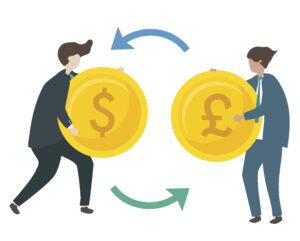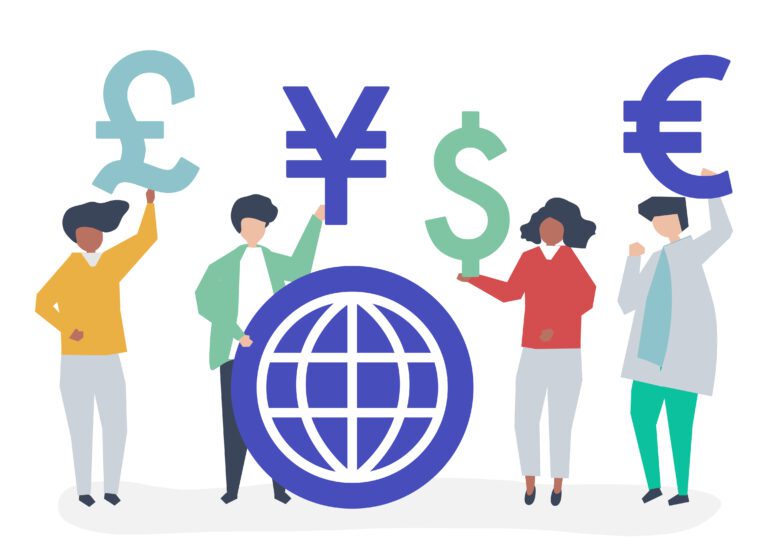Are you interested in making more money? If so, currency trading might be the perfect opportunity for you. Trading money in the foreign exchange market, also known as Forex, can be a lucrative venture if done correctly.
The size of the global foreign exchange market is $805 billion in US dollars in 2023. With a projected growth rate (CAGR) of 6.92% from 2024 to 2032, the IMARC Group projects that the market will reach US$ 1,466 billion by 2032.
In this post, we will walk you through the steps of how to trade currency, providing you with valuable insights and tips to help you navigate the exciting world of currency trading.
Introduction to Currency Trading
Currency trading involves buying and selling currencies in the foreign exchange market. The goal is to profit from the fluctuations in exchange rates between different currency pairs. The foreign exchange market is the largest and most liquid financial market in the world, with an average daily trading volume of over a trillion.
Choosing a Currency Pair
The first step in currency trading is to choose a currency pair. There are three main categories of currency pairs: majors, minors, and exotics. Majors consist of the world’s biggest currencies against the US dollar. Minors are combinations of major currencies, and exotics include less-traded currencies.
Deciding How to Trade Forex
Once you have chosen a currency pair, you need to decide how you want to trade forex. There are two main types of forex markets: spot and futures. In the spot market, you trade currencies at the live price, while in the futures market, you speculate on the future value of a currency pair.

Opening and Funding Your Forex Account
Before you can start trading forex, you’ll need to open a forex account with a trading provider. The account opening process is quick and straightforward. Once your account is open, you’ll need to fund it with a sufficient amount to cover the margin requirement of your trades.
Buying or Selling Your Currency
When trading forex, you have the option to go long (buy) or go short (sell) a currency pair. Going long means you believe the base currency will strengthen or the quote currency will weaken. Going short means you believe the base currency will weaken or the quote currency will strengthen.
Managing Your Risk
Managing risk is crucial in currency trading. A comprehensive risk management strategy is essential to protect your capital and maximise your profits. One effective risk management tool is the use of stop loss orders and take profit orders, which automatically close a position when the price reaches a predetermined level.
Monitoring and Closing Your Trade
Once you have opened a trade, it’s important to monitor it closely. Market prices can fluctuate rapidly, and staying informed allows you to make informed decisions. When you are ready to close your trade, you can do so by selling the same amount of the currency pair you initially bought.
The Importance of Forex Risk Management
Forex risk management is crucial for successful trading. It involves understanding and managing the potential risks associated with currency trading. By implementing proper risk management techniques, you can minimise losses and protect your capital.
Types of Orders in Currency Trading
There are several types of orders you can use in currency trading. The most common ones are stop loss orders and take profit orders. A stop-loss order closes a trade at a price worse than the current market level, while a take-profit order closes a trade at a price better than the current market level.
Realising Your Forex Profit or Loss
When you close a forex trade, your net profit or loss is realised. This profit or loss is immediately reflected in your account’s cash balance. It’s important to track your profit and loss and calculate your potential risk before entering a trade.
Recommended Online Trading Courses
To expand your understanding of foreign exchange trading, take online trading courses. They are specialised courses which involve intensive learning and knowledge from professionals in the field. These include technical analysis, fundamental analysis, and risk management, among others.
At Financial Markets Online, our expert advisory service offers access to years of accumulated trading wisdom. Our passionate experts crafted online forex trading courses that will help you get profits from your currency trade.
Conclusion
The dynamic world of currency trading comes full circle when you close your FX trade, realising your net profit or loss. This seamless process ensures that your account cash balance reflects your P&L, and our platform empowers you to proactively calculate potential risks with precision.
So, now that you know how to trade currency, take charge of your forex journey with informed decision-making and strategic planning.
Meet the Financial Markets Online team, a wealth of knowledge and experience ready to share insights, enhancing your forex journey.
FAQs
Q1: What is currency trading?
Currency trading, also known as Forex trading, involves buying and selling currencies in the foreign exchange market to profit from fluctuations in exchange rates.
Q2: How do I choose a currency pair to trade?
When choosing a currency pair, consider factors such as volatility, liquidity, and your trading strategy. It’s advisable to start with major currency pairs before exploring minors and exotics.
Q3: How much money do I need to start trading currency?
The amount of money you need to start trading currency depends on your trading strategy and the margin requirement set by your trading provider. It’s recommended to have enough funds to cover potential losses.
Q4: Are there any risks involved in currency trading?
Yes, currency trading carries inherent risks. Market volatility, economic events, and unexpected news can impact exchange rates and result in losses. Proper risk management is essential to mitigate these risks.



